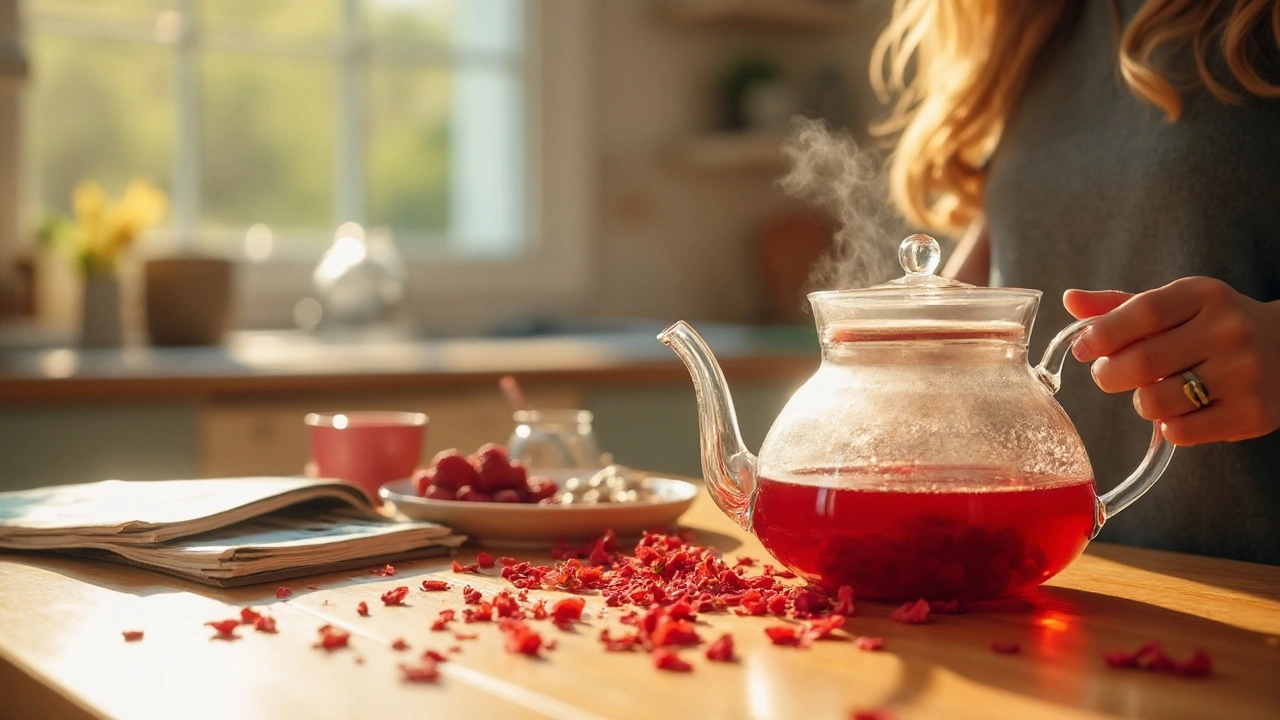Hibiscus Supplement: What It Is and Why It Matters
If you’ve ever sipped a tart, deep‑red hibiscus tea, you already know the flavor. Turning that flower into a capsule or powder gives you a convenient way to tap into its health perks without brewing a pot every day. People take hibiscus supplements for everything from supporting heart health to managing blood sugar, and the science behind those claims is getting clearer.
In this guide, I’ll break down the core benefits, explain how the supplement works, and share simple tips for choosing a quality product. By the end, you’ll know whether adding hibiscus to your daily routine makes sense for you.
Top Benefits of Hibiscus Supplement
Heart health support – Hibiscus is rich in anthocyanins, the pigments that give the flower its bright color. Those compounds help relax blood vessels, which can lower systolic blood pressure by a few points. Several small studies show that taking 300‑500 mg of hibiscus extract daily can modestly reduce blood pressure in adults with mild hypertension.
Blood sugar regulation – Early research suggests hibiscus may improve insulin sensitivity. In a 12‑week trial, participants who added hibiscus extract to their diet saw lower fasting glucose levels compared to a placebo group. If you’re watching your sugar, the supplement could be a handy add‑on alongside diet and exercise.
Antioxidant boost – The same anthocyanins act as antioxidants, fighting free radicals that damage cells. Antioxidant power can support skin health, reduce inflammation, and even help with recovery after workouts.
Weight‑management aid – Some users notice a decreased appetite and better digestion when they take hibiscus regularly. While it’s not a magic bullet, pairing the supplement with a balanced diet can help you stay on track.
How to Choose and Use Hibiscus Supplements
First, look for a product that lists standardized hibiscus extract on the label. Standardization means the manufacturer measured the anthocyanin content, so you know you’re getting a consistent dose each time. Aim for extracts delivering at least 10 % total anthocyanins.
Second, check the source. Hibiscus grown without pesticides and harvested at peak bloom yields the most potent phytochemicals. Organic certifications are a good sign, but reputable brands often provide third‑party testing results to prove purity.
Dosage matters, too. Most studies use 300‑500 mg of standardized extract per day, split into two doses. If you start with a lower dose, give your body a week to adjust before moving up. Taking it with food can reduce any mild stomach upset some people experience.
Finally, be aware of interactions. Hibiscus can enhance the effect of certain blood‑pressure meds, so if you’re on prescription drugs, chat with your doctor first. The supplement is generally safe for most adults, but pregnant or nursing people should avoid high doses.
Putting it all together, a typical routine might look like this: take one capsule with breakfast and another with dinner, stay hydrated, and monitor how you feel. If you notice a steady drop in blood pressure or more stable energy levels, you’re probably reaping the benefits.
Remember, supplements aren’t substitutes for a healthy lifestyle. Pair hibiscus with a balanced diet rich in fruits, veggies, and whole grains, and keep up regular exercise. When you combine those basics with a reliable hibiscus supplement, you give your body a solid boost without a lot of hassle.
Got questions about which brand to pick or how hibiscus fits into your specific health goals? Feel free to drop a comment or check out our related articles on natural heart‑health aids and blood‑sugar management. Happy supplementing!

Top 10 Reasons to Choose Hibiscus as Your Daily Supplement
Discover why hibiscus makes a powerful dietary supplement. From antioxidant power to blood pressure support, these ten reasons show how hibiscus can boost your health today.